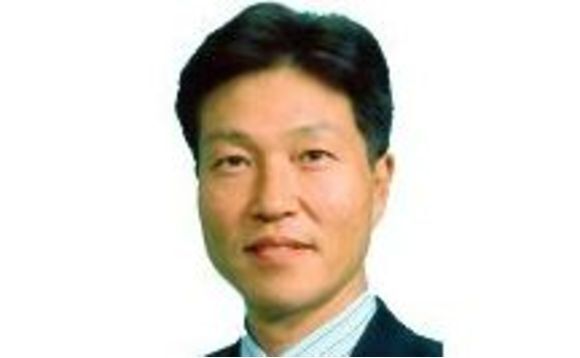
Unison resets controls, salaries

After the tragic incident last year when one of its former partners died just after an official investigation, Japanese buyout firm Unison Capital is planning to move forward by strengthening its internal control systems to prevent any misconduct by its partners.
In addition, the firm decided to cut partners' salaries; led by John Ehara with 40%, while four other partners, including Tatsuya Hayashi, Tatsuo Kawasaki, Osamu Yamamoto and Kiyoto Matsuda, accepted a 30 % pay reduction.
New measures
Earlier this month, the private equity firm, led by former Goldman Sachs banker Ehara, released details of the measures, intended to prevent the recurrence of the activities that led to the investigation of former partner Kenichi Kiso for alleged insider trading.
The measures focused on four key points. The first is to tighten information control systems by formulating new information security policies, and provide thorough notification of such new policies to all directors and employees. The second is to strengthen equity securities trading restrictions and monitor employees' holdings of equity securities, while prohibiting in principle all trading of Japanese equity securities, while employees are to submit regular reports of their holdings to Unison, with Unison to monitor such holdings. The third is to enhance the firm's educational structure and training, by employing an individual with the appropriate ability and experience as a compliance specialist on the Compliance Committee, as well as increasing the frequency of compliance training sessions from once per year to once per quarter. Lastly, Unison aims to establish self-discipline as a rigorous organization by placing further importance on the control functions exerted by outside experts, and will work to further strengthen its internal controls.
The firm said that, "Compliance with Applicable Laws, Ordinances and Internal Rules and Bylaws" will be strictly enforced.
Investigation and result
As AVCJ reported earlier, when Kiso's alleged insider trading activities were exposed many executives in the Japanese private equity industry were surprised. One said that it was crucial to address this for further fundraising activities because LPs might not feel confident to allocate their capital to Unison, even though it is recognized as a leading buyout firm in Japan. Another source said, "Kiso gained great trust at Tohato, one of its ex-portfolio confectionery company, with the many unique ideas he brought in. Employees of Tohato even send letters to him asking him not to leave as the company's acting CEO, when Unison sold it to Yamazaki Baking Co. [in July 2006 for ¥17.2 billion ($188 million at the current rate)]."
Most Japanese private equity firms have relatively few partners (up to 20 members is common), and each one's activities and responsibilities are often determined by their own abilities when making deals or managing portfolio companies. This case may serve as a precedent for Japanese private equity funds to reconsider security and control measures.
A spokeswoman for Unison said to AVCJ, "All partners and employees of Unison Capital are continuously trying to improve the organizational structure through strict discipline."
Asked how LPs reacted when the firm announced its new control measures, the spokeswoman said, "Investors are satisfied and are evaluating our measures. We are required by investors to take prompt action to address these self-strengthening policies in order to regain trust, while preventing recurrence of these kinds of incidents."
Unison's third-party investigation
In October last year, Unison's Tokyo office was investigated by the Japanese Securities and Exchange Surveillance Commission (SESC), due to alleged insider trading involving Kiso. The following day, Kiso died in undisclosed circumstances. Although the investigation was dropped due to death of the suspect, an external third-party investigation committee comprised of experts, including Attorneys Tadashi Kunihiro, Tomoaki Ikenaga and Naoto Nakamura appointed by Unison concluded in December announced that Kiso had traded securities listed on the firm's restricted securities list from July 2002, when he joined the firm, until SESC started the investigation.
Concurrently, the firm announced that there was no broader organizational involvement in the activities of the former Unison Capital partner. In addition, the Committee reported that it did not find any misappropriation of the assets of any fund to which Unison Capital provides advisory services or the resources of Unison Capital or any Unison Capital-related company in connection with the former partner's activities.
"Going forward, Unison will endeavor to recover your confidence and will aim to prevent inappropriate or illegal behavior by having all of its directors and employees work together to maintain a high level of awareness of compliance," said the firm in its statement.
Latest News
Asian GPs slow implementation of ESG policies - survey
Asia-based private equity firms are assigning more dedicated resources to environment, social, and governance (ESG) programmes, but policy changes have slowed in the past 12 months, in part due to concerns raised internally and by LPs, according to a...
Singapore fintech start-up LXA gets $10m seed round
New Enterprise Associates (NEA) has led a USD 10m seed round for Singapore’s LXA, a financial technology start-up launched by a former Asia senior executive at The Blackstone Group.
India's InCred announces $60m round, claims unicorn status
Indian non-bank lender InCred Financial Services said it has received INR 5bn (USD 60m) at a valuation of at least USD 1bn from unnamed investors including “a global private equity fund.”
Insight leads $50m round for Australia's Roller
Insight Partners has led a USD 50m round for Australia’s Roller, a venue management software provider specializing in family fun parks.








